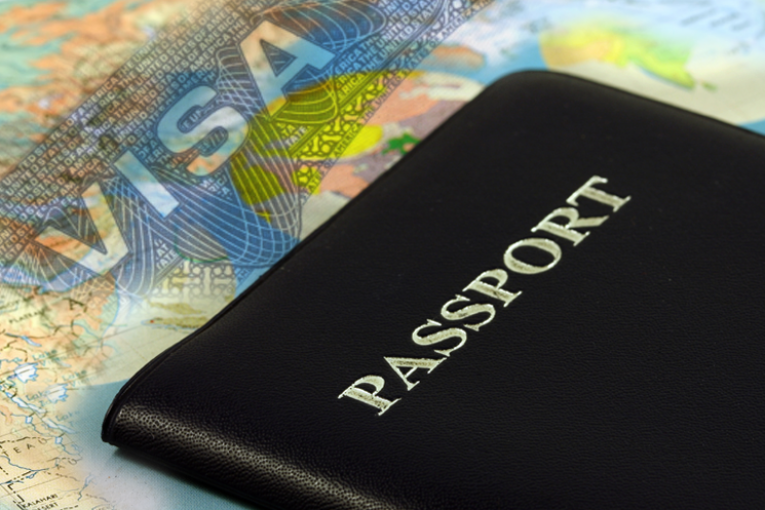

(From Press Release) – Attorney General Xavier Becerra today filed a friend-of-the-court brief in the Ninth Circuit U.S. Court of Appeals in State of Washington v. Trump, a case opposing the Trump Administration’s unconstitutional and un-American travel ban.
California was joined in filing the amicus brief by Connecticut, Delaware, Illinois, Iowa, Maine, Maryland, Massachusetts, New Mexico, New York, Oregon, Pennsylvania, Rhode Island, Virginia, Vermont, and the District of Columbia.
Attorney General Becerra released the following statement after the filing:
“On behalf of the nearly 40 million people of California, I stand shoulder-to-shoulder with attorneys general in Connecticut, Delaware, Illinois, Iowa, Maine, Maryland, Massachusetts, New Mexico, New York, Oregon, Pennsylvania, Rhode Island, Virginia, Vermont, and the District of Columbia, in filing an amicus brief in the Ninth Circuit Court of Appeals to preserve the suspension of the Trump Administration’s travel ban.
The Administration’s reckless dismissal of the Constitution threatens to rip apart California families, risks their economic well-being and defies centuries of our American tradition.
The brief I joined tells the appeals court that immigrants are the life-blood of our nation who work hard to build our country, especially in California. Our universities, medical institutions, businesses, and our tax base are all harmed by President Donald Trump’s unconstitutional and un-American order.
Here are examples of how states and California would be harmed if the ban were implemented, as detailed in our brief:
- Medical school programs would “risk having insufficient medical residents to meet staffing needs.” (p. 5)
- Medical residents would be “unable to renew or extend their nonimmigrant visas” and schools would be left “with unfilled positions in their years-long programs for training physicians; and staffing gaps will open up at hospitals.” (p. 8)
- The process of admitting students to state college and universities would be disrupted.
- “The University of California’s ten campuses have almost 500 affected graduate students and 40 affected undergraduates. . . the California State University System has more than 1,300 students from the affected countries with immigrant status and more than 250 students on student visas” (pp. 5-6)
At the California Department of Justice, our Civil Rights and Government Law sections and our Solicitor General’s office worked day and night to make this filing happen.
We in California will continue to coordinate with like-minded states in a concerted effort to fight the travel ban that denies the rights of law-abiding people to travel freely here and abroad. And I will do everything possible as Attorney General to make sure that the executive order by the Trump administration does not see the light of day.”
From the brief…
Disruption and Additional Costs at State Colleges and Universities
The Executive Order has inflicted and continues to inflict harm on state colleges and universities across the country, including in the amici States, which rely on faculty and students from across the world.
First, the Executive Order has disrupted our state educational institutions’ ability to meet their staffing needs. The Order is already preventing and dissuading scholars from coming to our institutions—including scholars who had already committed to filling positions…
While there is no absolute right to the maintenance or continuation of a visa, our state educational institutions rely on predictability in the visa system. Moreover, foreign-born faculty who are here on visas typically have specialized expertise that cannot easily be replaced. Colleges and universities are already forming task forces and making contingency plans to fill these particular voids in their faculty rosters. These efforts represent a considerable expenditure of scarce resources and may not be successful.
Contrary to the federal government’s suggestion, these expenditures are compelled by the Executive Order, and are not merely elective or speculative. The amici States are aware of numerous staffing-related harms to specific programs in our state institutions. These include foreign scholars from the affected countries holding duly-issued, otherwise-valid J-1 visas who have abandoned their plans to come to the United States and teach because of the Executive Order. In some such cases, the scholars were expected to teach during the spring semester of 2017, leaving holes in faculty rosters that our institutions must immediately fill…
Second, the Executive Order creates uncertainty and will impose additional costs related to nonimmigrant faculty and other employees who are already present in the United States…
Third, the Executive Order has disrupted the process of admitting students for enrollment and imminently threatens the loss of hundreds of millions of tuition dollars…
Finally, the President’s Order has in many cases eliminated the ability of faculty and students from the affected countries with nonimmigrant visas to travel. The amici States are aware of specific examples where that inability to travel is harming our institutions’ core missions of education and scholarship….
“the scholars were expected to teach during the spring semester of 2017, leaving holes in faculty rosters that our institutions must immediately fill…”
This alone will be a major problem in both the UC and State University systems where it is already difficult to complete a four year program within four years due to lack of instructors to teach the necessary sessions thus adding to the cost of a four year program as well as graduate programs. My son is currently in such a program at Sac State which will be extended beyond the four years due to lack of ability to obtain needed courses, a major challenge for many of his classmates. This is causing major harm which will reverberate through the lives of many.